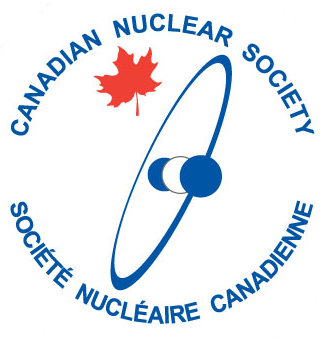
- This event has passed.
Mark Jensen – Adaptive Phased Management: Canada’s Plan for Long-term Management of Nuclear Used Fuel The Role of Geosciences
March 1, 2017 @ 12:00 am
Adaptive Phased Management:
Canada’s Plan for Long-term Management of Nuclear Used Fuel
The Role of Geosciences
Speaker: Mark Jensen, Director of Deep Geologic Repository Geoscience and Research at NWMO, P.Geo.
Date/Time: March. 1st, 1:30 pm – 2:20 pm.
Location: ETB-533 (Engineering Technology Building), McMaster University.
Summary
The Nuclear Waste Management Organization (NWMO) is responsible in Canada for the long-term safe management of Canada’s used nuclear fuel. The Federally approved plan for long-term used fuel Management being implemented by the NWMO is referred to as Adaptive Phased Management (APM). The APM approach ultimately envisions Canada’s used nuclear fuel being emplaced within a multi-barrier Deep Geologic Repository (DGR) designed to provide passive safety at time frames relevant to repository safety (i.e., 1Ma) in a suitable sedimentary or crystalline setting. As part of APM, the NWMO foster advances in Geoscience related to the characterization and assessment of varied geologic settings to safely host a DGR at a nominal depth below ground surface of 500 m. The Geosciences program is multi-disciplinary with a focus on methods necessary to gather evidence regarding the past, present and future evolution of the geosphere as it influences understanding of geologic formation barrier properties, longevity and integrity. In this role Geoscience provides a basis to develop a Descriptive Geosphere Model that supports a science based understanding DGR containment and Isolation, and confidence in a site-specific DGR Safety Case.
The APM Geosciences work program is intent on preserving knowledge and refining methods to explore deep-seated very low permeability crystalline and sedimentary groundwater systems. The activities fall into four categories: i) development of laboratory and surface based in-situ borehole techniques to characterize sub-surface conditions governing, in part, site suitability; ii) illustrative numerical experiments and site-specific assessments at repository, local and regional geosphere scales to capture the time rate of change and magnitude of geosphere response to events including, including natural and repository induced perturbations; iii) the assessment of uncertainty influencing repository safety including seismic hazard, geomechanical stability, Excavation Damage Zone (EDZ), couple Thermal-Hydraulic-Mechanical phenomena processes formation and long-term climate change resulting on glacial and permafrost advance and retreat over the North American continent; and iv) collaborative applied research and development within crystalline and sedimentary Underground Research Laboratories on phenomena directly linked to testing confidence in a case for DGR safety.
This presentation provides a description of the APM Geosciences technical program with a focus on key activities motivated by continually improvement of the scientific basis to reliably test the behaviour of the geosphere as a natural barrier to passively contain and isolate used nuclear fuel at time periods relevant to repository safety.
Biography
Mark Jensen (HBSc. (Co-op) – Waterloo (1986); MSc. – Toronto (1993); P. Geo) is Director of Deep Geologic Repository Geoscience and Research at the Nuclear Waste Management Organization (Toronto, Ontario). He has been involved in environmental Geosciences since joining Ontario Hydro in 1986. His background is in physical and chemical hydrogeology, in particular, as relevant to interim and long-term radioactive waste management. Responsibilities have included the direction of Canadian and international multi-disciplinary Geosciences research and development (25-30 work programs; 15 Universities) associated with radioactive waste management (Ontario Hydro (1998)/Ontario Power Generation (1999-2006)/NWMO (Present)). Mark directed Geoscience studies (2002-present) related to the Environmental Assessment and regulatory licensing of the proposed Ontario Power Generation Bruce nuclear site Deep Geologic Repository for low and intermediate level radioactive waste. He is engaged in international Geosciences research for long-term radioactive waste management purposes through OECD/NEA Working Groups including SEDE (1996-1999), AMIGO (2002-2008; Steering Committee) and the Characterization, the Understanding and the Performance of Argillaceous Rocks as Repository Host Formations (‘Clay Club’) to which he was voted Chair in 2012 (12 Countries). He has authored or co-authored more than 76 reports, journal manuscripts and conference papers.
Coffee and Tea will be provided at the seminar, courtesy of the CNS. Please contact sharpejr@mcmaster.ca if you have any questions.
